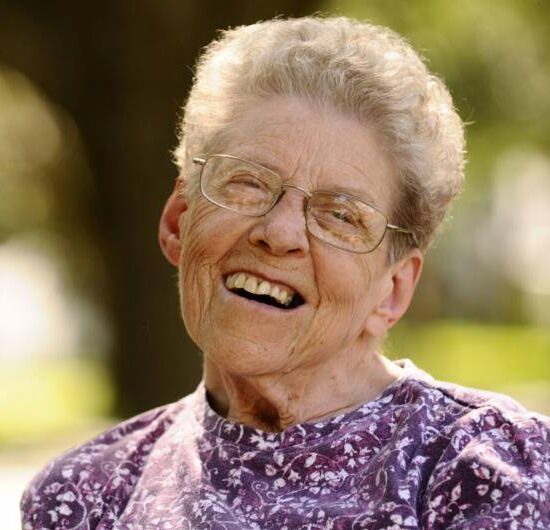Maureen Dolohanty was born in Madison, Wisconsin, on January 29, 1929. Doctors thought she would only live a few days because she was born with cerebral palsy (CP), a medical condition that affects movement and posture. She attended Washington Grade and Orthopedic School, a school for people with disabilities because her original elementary school would not accommodate her. She then attended Mount Horeb High School and graduated in 1947.
She married Bernard Arcand in 1954 and divorced in 1966, making her a single mother of six children. That was also the year she began decades of social justice work. First, she spent two years as the Wright Street Betterment Association president and helped establish the East Madison Community Center. In 1970, she became the first chair of the Dane County Welfare Rights Alliance. As a welfare recipient herself, Arcand wanted to end the stigma of receiving government assistance. She led protests and lobbied politicians to get struggling families the help they needed. The following year, the Community Action Commission (CAC) chose her to chair their board. The CAC coordinated efforts between different poverty, recreation, and welfare programs. She traveled to Washington, DC, in 1972 to take part in a presidential advisory board on medical practices. In 1973, Arcand began working at the Dane County Social Planning Agency, helping coordinate social services for 61 community groups. She began working at Access to Independence as an advocacy specialist for people with disabilities in 1983.
Arcand served on the Dane County Board of Supervisors from 1986 to 1992. During her time on the board, she fended off proposed budget cuts to human services and served on the board’s human resources, economic assistance, and work services committees. After the Americans with Disabilities Act (ADA) became law in 1990, Arcand became the first evaluation coordinator for the ADA in Dane County, ensuring the County’s buildings and services were accessible for all people with disabilities. She retired from Access to Independence in 1993 but remained on the board of directors.
As she got older, Arcand had questions about how cerebral palsy would affect her body. Until her generation, most people with CP did not live long lives, so there was little information available about aging with CP. She began doing research with the Waisman Center at UW–Madison, and together, they created a healthcare toolkit for the Wisconsin Council for Developmental Disabilities. She also published articles on her experiences as resources for others with CP. In 2004, Arcand retired from the board of Access to Independence. She later joined the board of directors of the non-profit Movin’ Out, which helps people with disabilities get accessible housing.
Arcand was honored by the Wisconsin Senate in 2009 for her advocacy work, and she received many awards over the course of her career. She passed away on April 29, 2015, at 86 years old.
LEARN MORE
Arcand, Maureen. 2016. “Perspectives on Aging with Life-Long Disabilities.” https://wi-bpdd.org/wp-content/uploads/2016/09/Perspectives_on_Aging3.pdf
“Honoring Maureen Arcand.” 2009. Congressional Record Volume 155. https://www.govinfo.gov/content/pkg/CREC-2009-04-30/html/CREC-2009-04-30-pt1-PgE1023.htm
Ryan Funeral Homes. 2015. “Maureen Ursula Arcand Dolohanty.” https://www.ryanfuneralservice.com/obituaries/maureen-ursula-arcand-dolohanty/
Profile written by Emma McClure and edited by Kelsey Foster.
Photo courtesy of Access to Independence.
